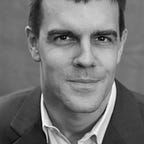FTX’s Collapse Isn’t Just About Fraud. It’s About What Happens When You Live Inside the Crypto Bubble.
Disgraced FTX founder Sam Bankman-Fried’s live interview today with the New York Times’ Andrew Sorkin at the paper’s Dealbook conference was predictably odd, with Bankman-Fried at once appearing contrite and apologetic for his many failures as FTX’s C.E.O. while also dodging any suggestion that chicanery was involved in FTX’s collapse earlier this month.
As a result, watching the interview will not give you a clearer understanding of whether, as many reports have claimed, FTX illegally (or at least unethically) funneled customer assets to Alameda Research, the crypto hedge fund SBF also founded, in a foolhardy attempt to let Alameda make big bets on crypto. But what the interview did make clear, I think, is that the story of FTX is not simply a story of corporate fraud, as many crypto advocates would like it to be. Instead, it’s a story about someone who was so thoroughly in thrall to a delusion — the delusion that crypto is the Next Big Thing — that he built and then destroyed a company in pursuit of it.
What, after all, ultimately brought FTX down was that it had made huge margin loans to Alameda, so that it could make highly-leveraged bets on other crypto assets. Some of those loans may have been funded with assets from customers who had never…
